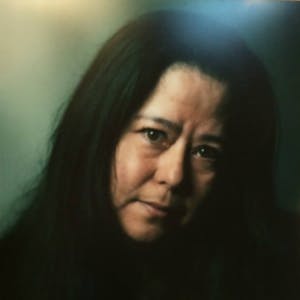
Riki Mafune: Japanese American Heritage and the Beat of Seattle's Music Scene


Meet Riki Mafune, a third-generation Seattleite with a family history deeply intertwined with Japanese American experiences. The conversation delves into Japanese American history, the challenges of the internment camps, the Seattle music scene, and Riki's personal journey as a musician.
Family Legacy and Internment Camps
Riki shares her family's poignant story of generational trauma stemming from internment camps during World War II. Her great-grandfather passed away en route to the camps, and her family faced immense challenges upon their return home. Split up and relocated to camps like Camp Harmony (Puyallup Fairgrounds), Tule Lake, and Minidoka. Riki's family experienced the government's work release programs created for interned individuals to bolster the war effort. This section sheds light on the impact of Executive Order 9066, signed by President Roosevelt in 1942, leading to the unjust internment of Japanese Americans.
Japanese Cultural Heritage and Resources
Diving into Japanese cultural heritage and resources, Riki shares insightful recommendations. She points to organizations like Densho.org highlighting their invaluable documentation of historical aspects of the camps. Riki also recommends the Japanese Cultural and Community Center of Washington and emphasizes the importance of educational resources to preserve and promote Japanese American history and culture. To further engage with this heritage, walking tours offered by institutions like the Seattle Public Library and the Wing Luke Museum provide immersive experiences for learning about vestiges of Japanese culture in the area.
Cultural Identity and Heritage
Furthermore, the discussion unravels Riki's experiences of embracing her mixed heritage and her mother's active role in educating her about both sides of her ethnicity. Riki shares her memories of growing up in the Roosevelt View District area, and the conversation touches on her family's ties to Japan through a greenhouse and a flower shop. This segment highlights the importance of understanding and celebrating one's cultural heritage.
Seattle Music Scene and Racial Marginalization
Transitioning to the Seattle music scene, Riki reminisces about her music career, which kick-started with the band Dynette Set. Amid anecdotes about the band's formation and hard work, the conversation uncovers the challenges Riki and her bandmates faced in a male-dominated rock and roll world. They pushed back against being marginalized and commercialized, refusing to conform to an inauthentic image. This segment delves into the lack of diversity in the Seattle music scene at the time, shedding light on the racial stereotypes and marginalization that women musicians, including Riki, encountered.
Personal Journey and Reflection
Learn more about Riki's personal journey and gain insight into her early ventures in music and the challenges she encountered. Riki candidly shares her struggles with feeling like an outsider and her experiences of working non-music-related jobs after the Dynette Set era. The segment also touches on her decision to go to college, attending Seattle University and majoring in philosophy. It reflects on her family's quietness about their internment experiences and her journey of researching and confirming their stories, shedding light on the resilience and perseverance reflected in her career choices.
Photo credit: Ernie Sapiro
Connect With Us
Help Us Out
🟢 Leave Us a Rating on Spotify
💜 Leave a Review on Apple Podcasts
🤝 Introduce Us to a Potential Guest






